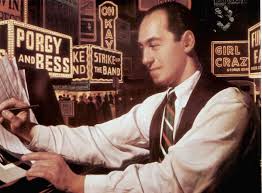 I’ve said it before and I’m likely to say it again. I think too much.
I’ve said it before and I’m likely to say it again. I think too much.
I’d be aware of this fact even if the people around me didn’t regularly remind me. (Yeah, it’s that obvious.) Thinking too much is way-wicked better, though, than the more typical American attitude of thinking too little or the almost pandemic not-thinking-at-all. Thinking is Good.
Still, thinking too much has its own set of drawbacks.
One negative is that I get stacks and stacks of ideas to write about for blogs, articles, fiction, and scripts – more than I’d ever be able to get around to in this lifetime.
 To cut down on that pile, allow me to pop the stack with a random dump of topics here. With sufficient thought (of which, as I’ve mentioned, I have an overabundance) and time (of which I have precious little) some of these might justify an entire post of their own. Who’s got time for that? I’m too busy thinkin’.
To cut down on that pile, allow me to pop the stack with a random dump of topics here. With sufficient thought (of which, as I’ve mentioned, I have an overabundance) and time (of which I have precious little) some of these might justify an entire post of their own. Who’s got time for that? I’m too busy thinkin’.
Have you noticed that, as movies get shorter*, credits get longer? You’d think the equation “shorter movies = less to do = less credit” would apply, but you’d be wrong. There are more people getting credit for doing whatever they do. It bucks the whole business trend of “doing more with less.”
 Look at a classic film like the seasonally appropriate “It’s a Wonderful Life”. The credits list only the major acting roles, director, screenwriter, costume designer, and a few others. Buried in the eight or nine minutes of credits today, you’ll find the insurance company underwriting the movie, five drivers, the caterer(s), several assistant background colorists, and a seemingly infinite number of other obscure jobs. (Key grip, lock grip, best boy, worst girl, mediocre pet.) No exaggeration: Today’s trailers list more credits than did entire films from the 40’s.
Look at a classic film like the seasonally appropriate “It’s a Wonderful Life”. The credits list only the major acting roles, director, screenwriter, costume designer, and a few others. Buried in the eight or nine minutes of credits today, you’ll find the insurance company underwriting the movie, five drivers, the caterer(s), several assistant background colorists, and a seemingly infinite number of other obscure jobs. (Key grip, lock grip, best boy, worst girl, mediocre pet.) No exaggeration: Today’s trailers list more credits than did entire films from the 40’s.
[*They are getting shorter in general, with the obvious exception of “Interstellar“. If movie length affected credit length, the credits for that epic-in-its-own-mind would roll longer than an average romantic comedy runs in its entirety.]
Speaking of classic movies, does anyone else see a problem with the current practice of labeling a newly released film an “instant classic”? Is that legit? It seems to me that a little passing of time is required to test whether something is truly classic. Otherwise, why not have brand new antiques? Anyone who can explain all this will become an instant legend.
 When Robin Williams died before his time, it reminded me how much I grieve when an artist dies, not only for the loss of life, but at the loss of the great works that will never be. My most painful example is George Gershwin, possibly the greatest musical genius in American history, who died at age 38. Those first 38 years produced a wealth of memorable music. How many more great musical creations went to his grave with him? Another “Porgy and Bess” perhaps? An entire rainbow of Rhapsody’s? That’s something to mourn.
When Robin Williams died before his time, it reminded me how much I grieve when an artist dies, not only for the loss of life, but at the loss of the great works that will never be. My most painful example is George Gershwin, possibly the greatest musical genius in American history, who died at age 38. Those first 38 years produced a wealth of memorable music. How many more great musical creations went to his grave with him? Another “Porgy and Bess” perhaps? An entire rainbow of Rhapsody’s? That’s something to mourn.
I called the doctor the other day and was greeted with a recording that said, “If this is a life-threatening medical emergency, hang up and dial 911.” I don’t even know where to begin on that one. First of all, do we need to say “hang up”? That would seem obvious. Anyone who calls the main switchboard of a hospital during a “life-threatening emergency” does indeed have serious problems, but even 911 won’t help. I seem to get this same message no matter what kind of medical practice I call. Do you suppose there are a lot of people with life-threatening emergencies calling their optometrist?
The good news: Black Friday sales were down 7%. The bad (actually, tragic) news: Sales on Thanksgiving Day were up 24%. It’s official. America has completely lost its sense and moral compass.
 There’s a watch store at the mall. Are enough people still buying watches to justify dedicated stores? Why is anyone buying a watch? Everyone and their pets carry cell phones that prominently display the time. Besides, clocks are everywhere now, in everything. From where I sit, I can see the time on a radio, cable box, toaster, TV, DVD player, microwave, and phone. The bathroom is the only safe place from the invasion of the timepieces. Maybe that’s where people need their watches. I hope not. To paraphrase Brian Regan, if you gotta check your watch in the john, you’re booking yourself too tight.
There’s a watch store at the mall. Are enough people still buying watches to justify dedicated stores? Why is anyone buying a watch? Everyone and their pets carry cell phones that prominently display the time. Besides, clocks are everywhere now, in everything. From where I sit, I can see the time on a radio, cable box, toaster, TV, DVD player, microwave, and phone. The bathroom is the only safe place from the invasion of the timepieces. Maybe that’s where people need their watches. I hope not. To paraphrase Brian Regan, if you gotta check your watch in the john, you’re booking yourself too tight.
And in spite of all those clocks, most people are still late.
I keep hearing people complain about getting phone spam even though they’re on the do-not-call list. What do these folks think, criminals check the DNC list before making their illegal robo-calls? Do they suppose murders would cease overnight if we had a do-not-kill list? Heck, let’s give it a try. I’d sign up.
Have you been in a sporting goods store lately? The floor space in these places is taken up by about 5% sports equipment and 95% clothes. It appears that no one is actually playing any sports these days, but if one breaks out, we’ll be ready.
Back here, I listed some things that have disappeared in my lifetime. I keep thinking of new ones:
 CRTs
CRTs- Fotomat (Remember those short-lived dinosaurs?)
- film
- All-encompassing catalogs such as Sears, JC Penney, and Montgomery Wards
Actually, all catalogs have outlived their usefulness as much as slide rules, Yellow Pages, and unfoldable road maps, but the individual retailers keep sending them out, especially around Christmas. I’m getting catalogs from companies I last did business with over ten years ago. Others are from companies I never even heard of. My recycling bin could have a field day if it had an internet connection.
Driving down the road recently, I was cut off by a guy whose car sported a “coexist” bumper sticker. He wants all races and religions to coexist peacefully but he can’t even coexist with the next car.
That’s a load off…
 I love to write or I wouldn’t be doing this. Even if no one read my scribblings, I suppose I’d scribble them anyway. That’s a recurring theme from writers. We write because we have no other choice. It’s not like we don’t have any other skills, we simply have the overwhelming need, passion, desire, yearning – call it what you will – to write.
I love to write or I wouldn’t be doing this. Even if no one read my scribblings, I suppose I’d scribble them anyway. That’s a recurring theme from writers. We write because we have no other choice. It’s not like we don’t have any other skills, we simply have the overwhelming need, passion, desire, yearning – call it what you will – to write. There’s no guarantee that adopting such an appellation will work, however. Photographer Arthur Fellig was more commonly known as Weegee. Somewhere along the line, he gave himself the title “Weegee the Famous”. He even marked all his photos with a stamp bearing his title as shown on the right. Have you heard of him? I rest my case.
There’s no guarantee that adopting such an appellation will work, however. Photographer Arthur Fellig was more commonly known as Weegee. Somewhere along the line, he gave himself the title “Weegee the Famous”. He even marked all his photos with a stamp bearing his title as shown on the right. Have you heard of him? I rest my case.












